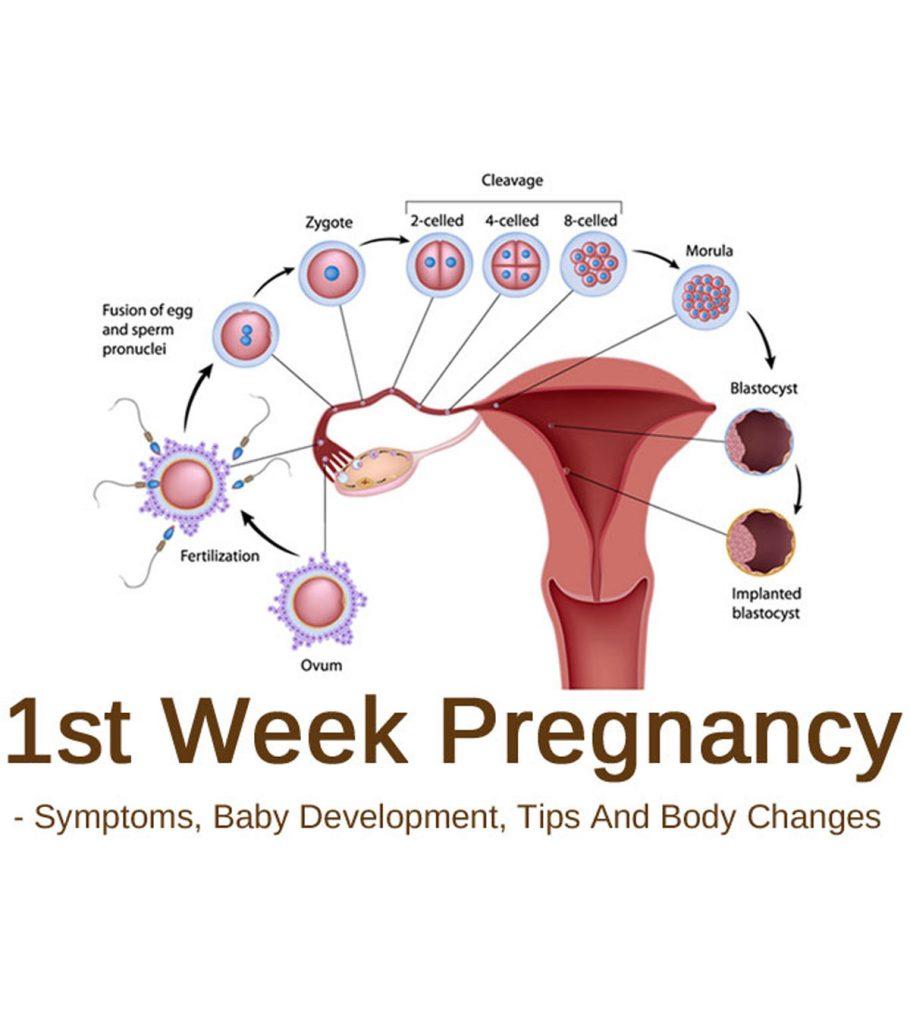
Pregnancy Symptoms in the First Week
Pregnancy is a remarkable journey that begins with a single fertilized egg. While many women experience noticeable symptoms in the early weeks of pregnancy, others may not notice any changes until later on. Understanding the potential symptoms of pregnancy in the first week can help you recognize the early signs and make informed decisions about your health.
Implantation Bleeding
One of the earliest signs of pregnancy is implantation bleeding, which occurs when the fertilized egg implants itself into the lining of the uterus. This usually happens around 6-12 days after ovulation and can resemble a light period. Implantation bleeding is typically lighter in color and shorter in duration than a regular period, lasting for a few hours or up to a few days.
Breast Tenderness
Increased breast tenderness is a common symptom in the first week of pregnancy. The breasts may become swollen, sensitive, and painful to the touch. This is caused by hormonal changes that prepare the breasts for milk production.
Fatigue
Extreme fatigue is a hallmark symptom of early pregnancy. The increased levels of progesterone can cause a feeling of constant exhaustion. This fatigue may be more pronounced in the first trimester and gradually improve as the pregnancy progresses.
Nausea and Vomiting
Nausea and vomiting, commonly known as morning sickness, can begin as early as the first week of pregnancy. These symptoms are caused by hormonal changes and can occur at any time of day. While morning sickness is often associated with pregnancy, not all women experience it.
Frequent Urination
Increased frequency of urination is another common symptom in the first week of pregnancy. This is caused by the increased production of a hormone called human chorionic gonadotropin (hCG), which stimulates the kidneys to produce more urine.
Bloating
Bloating and gas can occur in the first week of pregnancy due to hormonal changes that relax the muscles in the digestive tract. This can lead to slower digestion and a feeling of fullness or bloating.
Mood Swings
Mood swings are a common symptom of early pregnancy. The hormonal changes can cause emotional instability, leading to feelings of irritability, sadness, or anxiety. These mood swings may be more pronounced in the first trimester and gradually improve as the pregnancy progresses.
Other Potential Symptoms
In addition to the common symptoms listed above, some women may experience other less frequent symptoms in the first week of pregnancy, including:
- Headaches
- Dizziness
- Food cravings or aversions
- Metallic taste in the mouth
- Acne
- Constipation
When to See a Doctor
If you suspect you may be pregnant, it is important to see a doctor for confirmation. A blood test can detect the presence of hCG, which is a hormone produced during pregnancy. Your doctor can also perform a physical exam to check for any other signs of pregnancy.
Early Pregnancy Care
Once you have confirmed your pregnancy, it is important to begin prenatal care as soon as possible. Prenatal care involves regular checkups with your doctor to monitor your health and the development of your baby. Your doctor will also provide guidance on nutrition, exercise, and other important aspects of pregnancy care.
Conclusion
The first week of pregnancy is a time of significant hormonal changes that can lead to a variety of symptoms. While some women experience noticeable symptoms early on, others may not notice any changes until later in the pregnancy. Understanding the potential symptoms of pregnancy in the first week can help you recognize the early signs and make informed decisions about your health. If you suspect you may be pregnant, it is important to see a doctor for confirmation and to begin prenatal care as soon as possible.